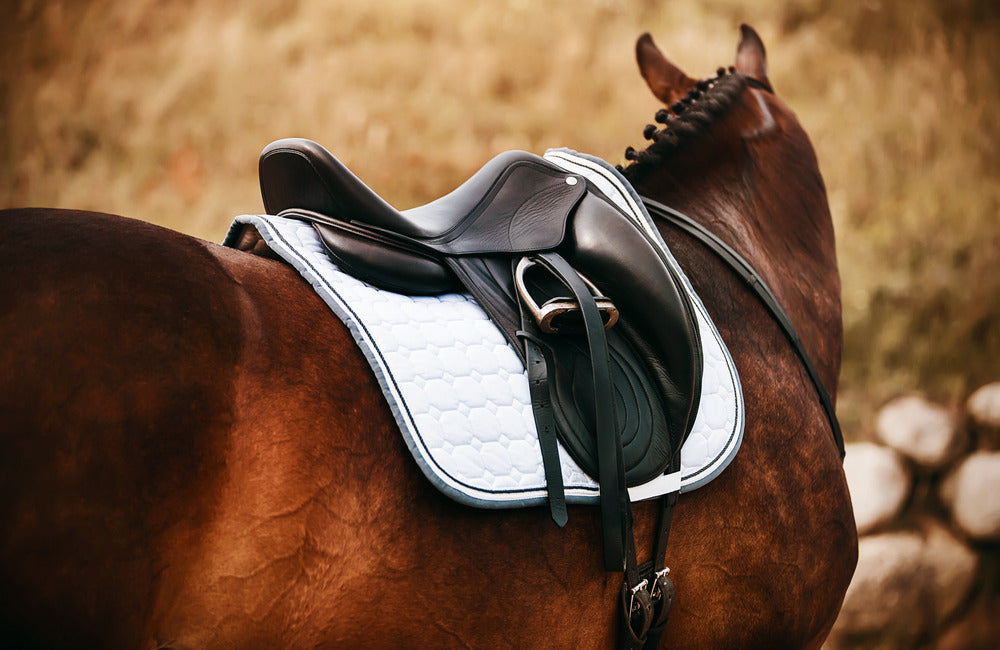
How to Stop a Horse Rearing: Tips and Techniques for Owners?
Share
Understanding how to stop a horse rearing is a crucial skill for every horse owner. Rearing can signal deep-seated issues, including fear, discomfort, or even a lack of training. As health-conscious pet owners, it is essential to approach this behavior with patience and awareness.
This guide provides insights into the cause of rearing, practical approaches to curbing this behavior, and essential training methods. Horse riding is not just a sport; it is a profound connection between you and your pet, which needs nurturing and respect.

Understanding Rearing Behavior
Before discussing how to stop a horse rearing, it's vital to understand why horses rear. This behavior can stem from various reasons, including:
- Fear: Horses that are startled or frightened may rear to escape what they perceive as a threat.
- Discomfort: Problems with saddling or riding equipment can lead to physical discomfort, prompting a horse to rear up.
- Lack of Training: A horse that hasnt been adequately trained may not understand how to respond appropriately to different situations.
Recognizing these triggers is key to preventing rearing.
Immediate Actions to Take
If you find yourself in a situation where your horse begins to rear, here are some immediate steps to take:
- Stay Calm: Your horse can sense your anxiety. Stay composed and control your breathing.
- Use Your Voice: A firm and commanding voice can often redirect your horse's attention.
- Dont Pull on the Reins: Instead of yanking back, gently release pressure. This reduces the chance of escalating the behavior.
- Provide a Safe Environment: If possible, remove your horse from the situation that is causing the stress.
Long-Term Strategies for Prevention
Preventing rearing behavior requires consistent training and understanding your horse's needs. Here are effective strategies to consider:
1. Establish a Strong Foundation
Start with foundational training exercises that enhance communication between you and your horse. Focus on basic commands and ensure your horse understands your cues.
2. Desensitize Your Horse
Desensitizing your horse to common triggers of fear can build confidence. Gradually expose your horse to these triggers in a controlled environment until they are more relaxed.
3. Regular Health Checks
Health issues can also lead to unexpected behavior. Schedule regular veterinary checks and ensure your horse is not suffering from any physical maladies that may cause discomfort.
4. Professional Training
Engaging with a professional trainer can provide personalized techniques and strategies tailored to your horse's behavior. They can offer methods that ensure both you and your horse feel secure.
5. Utilize Proper Equipment
Ensure that your saddle and bridle fit properly. Using the right tack is crucial for a comfortable ride and can significantly affect your horses behavior.
For more tips on horse training, check out this article on clipping a horse.
Recognizing Signs of Rearing
Being able to recognize early signs of rearing allows you to act before the behavior escalates. Watch for:
- Tensing of the body
- Ears pinned back
- Nervous breathing
Dealing with Rearing Where It Starts
When you spot the early signs of rearing, consider redirecting your horses energy by using deliberate training methods:
- Exercise: Engage your horse in groundwork or lunging to release pent-up energy.
- Practice Transitions: Hollow transitions can facilitate focus back to you.
- Change Scenery: Take your horse for a hack in a new area to distract them from their fears.
For more on practical exercises, check out our guide on long reining a horse.
Health Considerations
Always prioritize your horse's physical health when dealing with behavior issues. Physical discomfort can lead to behavioral problems like rearing. Regular veterinary examinations ensure that your horse remains in optimal health. Heres a resource for treating hoof abscesses that can affect behavior.
FAQs about Rearing in Horses
What causes a horse to rear?
A horse may rear due to fear, discomfort from improper tack, or a lack of training.
How can I prevent my horse from rearing?
Preventing rearing can involve training, desensitization exercises, and regular health check-ups.
Should I seek professional help if my horse is rearing frequently?
Yes, a professional trainer can provide tailored strategies to address individual behavior concerns effectively.

Conclusion
Knowing how to stop a horse rearing is vital for ensuring a safe and enjoyable experience for both you and your horse. Patience, understanding, and proper training can significantly mitigate this behavior and strengthen your bond with your horse.
As an Amazon Associate, I earn from qualifying purchases.
